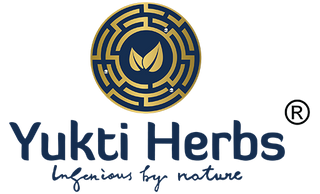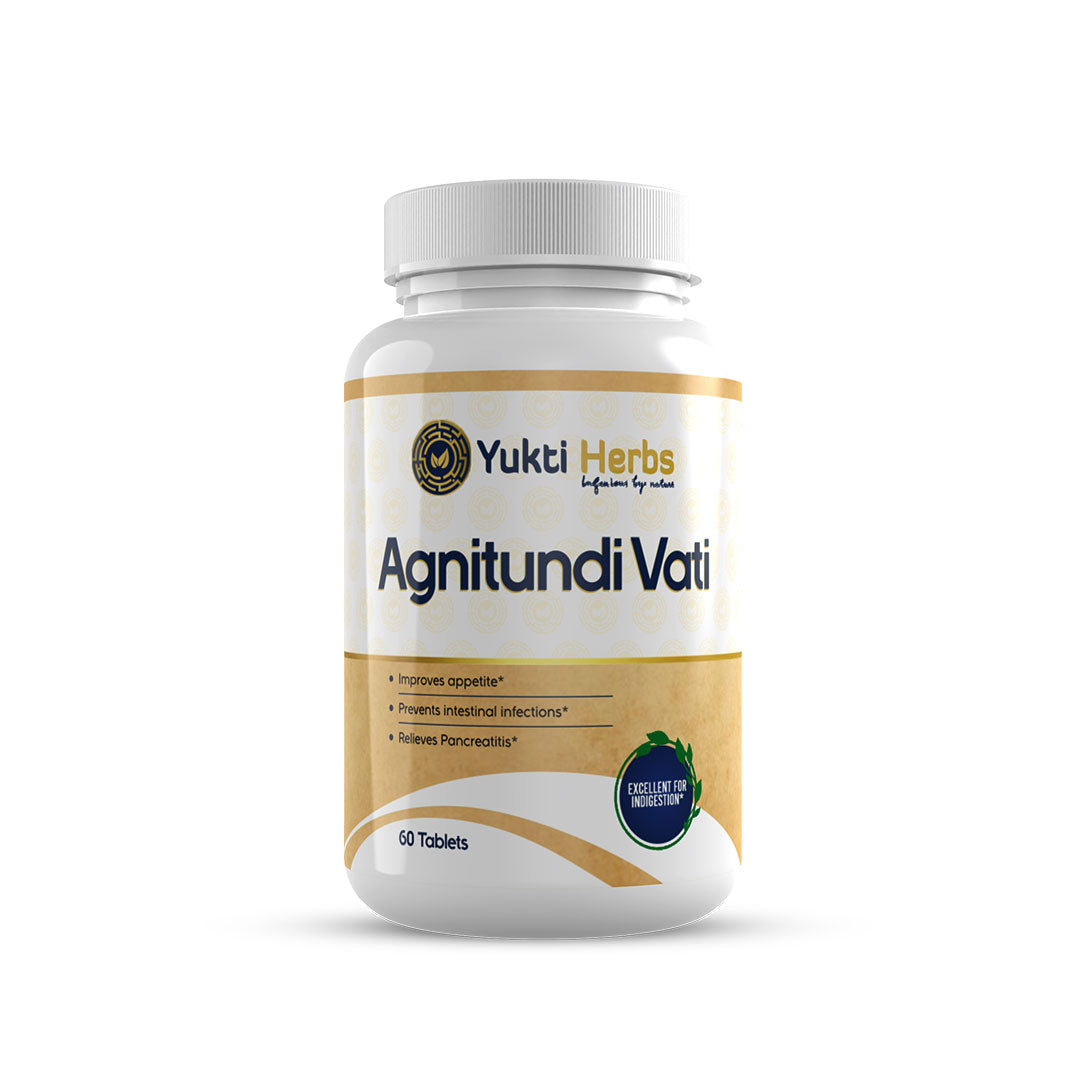
Ayurvedic Treatment for Ulcerative Colitis: A Completely Holistic Approach for Relief & Reversal
We understand that being diagnosed with ‘ulcerative colitis’ can be overwhelming and make you hopeless if you search about this condition on the internet. If you are finally here, we are sure that after reading this complete article, you will be enriched with hope & faith.
We understand your constant discomfort throughout the day, you are planning around your meals and outings and worrying about flare-ups, which may make you feel exhausted and anxious. Ulcerative colitis brings its challenges, and you must have tried and failed with every modern medicine treatment option. With an understanding of the modern and Ayurvedic approaches.
This blog offers a gentle, natural way to support your journey. After going through this, you will not fear frequent flare-ups, and all your confusion will be resolved. You will get to know the reasons behind frequent flares, constant fatigue, why you are not getting rid of this condition, foods that can nourish your body while keeping your gut on track of a healing journey and how you can cope up with the stress you are going through. How can you achieve all this through Ayurveda & Panchakarma? You can keep this article as a step-by-step guide to refer, when and where required.
What’s happening inside your gut when you are suffering from ulcerative colitis?
In a person suffering from ‘ulcerative colitis’, the inner lining of the colon becomes inflamed and swollen, developing small sores (ulcers), which cause discomfort and changes in bowel habits, bleeding, loss of appetite, pain, and a burning sensation in the intestinal tract.
An Ayurveda practitioner will assess your Prakriti (constitution) and Vikriti (current imbalance) through detailed questioning about your symptoms, lifestyle, and dietary habits and perform Nadi Pariksha (pulse diagnosis) to understand the state of your Doshas. Observing the nature of your bowel movements, pain, and overall health picture helps in understanding the imbalance in the ‘Pakwashaya’ (large intestine or colon) and aggravated Pitta Dosha.
Shloka Reference:
कुर्याद रक्तातिसारं तु रक्तं आशु प्रदूषयत् । तृष्णां शूलं विदाहं च गुदपाकं च दारुणम् ॥
Translation – When Pitta dosha becomes very strong in your body, it mixes with the blood and disturbs the balance & purity of the blood, resulting in bloody stools, which are accompanied by excessive thirst, stomach cramps, a burning sensation in the colon, and painful irritation around the anus.1
Ulcerative colitis symptoms may vary from person to person, and their severity can go from mild to severe flare-ups. A few common symptoms that you must be experiencing:
-
Frequent loose stools, sometimes with blood or mucus
-
Abdominal cramps or pain
-
Urgency to pass stools
-
Fatigue or low energy
-
Unintended weight loss
-
A feeling of incomplete evacuation
Ulcerative Colitis Level of Severity (USEIS Score Check)
This score indicator can be used to evaluate the severity of UC symptoms based on vascular pattern, bleeding, erosions, and ulcers.

In the above image, you can refer to it to analyze what exactly your current condition is, as most patients reach us when their condition is severe to fulminant because, in general, most people prefer to go for modern medicine due to fear or feelings of emergency & urgency, as blood in stools can make anyone feel horrible.
Now, as you can easily understand what your current condition is and what damage it has already caused you, it is time to understand what Ayurveda has to offer and how much you can depend on our treatment. Although there are no side effects of ayurvedic treatment but there is no sense in going for any treatment if it does not treat a health condition. So, our topmost priority is always to help you reverse the condition to a level where you can live with it in a well-managed way, and you do not bleed anymore.
Understanding Ulcerative Colitis through Ayurveda’s Lens
-
Mild Ulcerative Colitis ( Pittaj Grahani )
Excess Pitta (fire element) heat may create mild discomfort in the gut, leading to loose stools and occasional mucus.
-
Moderate Ulcerative Colitis ( Raktaj Parvahika )
Along with Pitta heat, bleeding becomes noticeable in the stools due to irritation of the colon walls.
-
Severe Ulcerative Colitis ( Raktaj Atisaar )
Excessive bleeding with stools, dehydration, severe pain in colon area, weight loss, complete loss of appetite and irritability is felt most often.
Difference between Ulcerative Colitis Ayurvedic Treatment and Modern Medicine Treatment
Ayurvedic care aims to cool excess Pitta, balance Vata, strengthen digestion (Agni), and heal the intestinal lining, so that symptoms reduce and gut health is restored. While modern medicine approaches reduce the inflammation and control the symptoms, Ayurveda aims to act on the root cause by balancing the aggravated doshas and strengthening the digestion.
Shloka Reference:
पित्तेऽतिसारे सवर्णे रक्तं सान्द्रं च यद्भवेत् । तद्विद्यात् रक्तातिसारं स शीतं गुरु च स्निग्धम्॥
Translation: A person with Pittaj Atisar passes stools mixed with blood, which are heavy, oily, and slippery, is considered a patient of “Raktaj Atisar”. In this condition, foods and medicines that are cooling, astringent, gentle, and unctuous are beneficial.2
Understanding Flare-ups from the Lens of Ayurveda
We know you must be thinking about the efficacy and effectiveness of Ayurvedic treatment protocols because repeated flare-ups disturbed you so badly that your mind must be questioning, 'Why do flares keep coming back?' What goes wrong so frequently? Can Ayurveda help during flare-ups?
Shloka Reference:
पित्तलस्यपुनरम्ललवणकटुकक्षारोष्णतीक्ष्णातिमात्रनिषेविणः|प्रतताग्निसूर्यसन्तापोष्णमारुतोपहतगात्रस्यक्रोधेर्ष्याबहुलस्यपित्तंप्रकोपमापद्यते ||
Translation: In a person with Pittaja constitution, the excessive and frequent intake of sour, salty, pungent, alkaline, very hot, and sharp substances, as well as constant exposure to heat from the sun or fire and dry, hot winds, leads to the aggravation of Pitta dosha.3
Note: Additionally, a lifestyle dominated by anger and jealousy also contributes to this Pitta aggravation. Meditation, book reading, light music, and spending quality time with your friends can help a lot.
Flare-ups in Ayurveda are considered periods when the aggravated Pitta and Vata doshas are further exacerbated. Common triggers can include:
-
Dietary Indiscretions: Consuming excessively spicy, oily, processed, or incompatible foods (Viruddha Ahara – like very hot beverages with cool medicines). Imagine adding fuel to an already raging fire.
-
Stress and Emotional Imbalances: Rajasic (over-stimulating) and Tamasic (dulling) emotions can disrupt Agni and exacerbate Pitta. Think of stress as adding more wind to the fire, making it spread.
-
Irregular Routines: Inconsistent sleep and meal timings disrupt the body's natural rhythms.
-
Suppression of Natural Urges: Ignoring the urge to defecate can lead to stagnation and further imbalance.
Note: Red‑flag Emergencies that need hospital care – high‑grade bleeding, severe dehydration and unstoppable flare-ups – must not be ignored; one should immediately decide to get admission at our Ayurveda & Panchakarma hospital, where we can control the situation with Panchakarma therapies, dietary regulations and active use of cooling & astringent herbal ingredients under 24 x 7 monitoring of your health condition by Ayurveda Experts.
Shloka Reference:
गुदनिःसरणे शूले पानम् अम्लस्य सर्पिषः। प्रशस्यते निरामाणाम् अथवा अप्यनुवासनम्॥
Translation: "In case of pain during bowel evacuation, the intake of sour ghee is beneficial for those who are free from Ama (undigested toxins). Alternatively, Anuvasana Basti (medicated oil enema) is also recommended."4
Meaning: When UC patients experience spasmodic pain and straining at defecation, and Ama is absent, ghee-based internal oleation or Anuvasana basti therapy can be used to lubricate the colon and reduce friction.
You may have the following thoughts in your mind-
Is Ulcerative Colitis a lifelong condition, or is there a cure? How does Ayurvedic Treatment work?
Is it effective in case of emergencies (flare-ups)?
How will Ayurveda help me in case of flare-ups?
With consistent adherence to personalised dietary and lifestyle recommendations, along with Ayurvedic herbs, Panchakarma therapies, managing UC and significantly improving quality of life is very much possible. Think of it like tending a garden: with consistent care and the right nourishment, you can cultivate healthy growth and manage any imbalances. So, nothing is impossible, but your determination, regularity, and self-control play a vital role, and we help you in your journey.
The Yukti Herbs Care Logic: 5 Goals, One Integrative Plan
1. Cool Pitta Dosha ( Reduce heat, bleeding, burning, irritation )
When motions burn, the rectal area feels raw, or stools show blood/mucus, your inner “heat” is high. Ayurveda focuses on cooling the aggravated fire element (Pitta). The classical description of Pitta includes burning, perspiration and excessive bleeding, which mirrors what many UC patients experience during flares. This is achieved by a combination of Pitta pacifying diets, herbs and Panchakarma therapies.

-
Diet: Soft, warm, low‑irritant meals—rice + moong dal or moong dal khichdi, steamed & mashed apple or sweet potato, ripened banana, pomegranate juice, tender coconut water, amla juice, buttermilk with fresh coriander leaves and cumin powder.
-
Herbs: Cooling & astringent herbs like Lajjalu (Mimosa), Amla, Arjuna, Nagkeshar, and soothing Yashtimadhu, etc.
-
Panchakarma Therapies: Pichcha Basti (a mucilaginous, cooling enema) and Pichu/Parishechana (gentle local applications) are administered to control bleeding/proctitis phases immediately.
Note: It is always better to consult before you adapt any of the above, and avoid self-medication
2. Calm Vata in the colon (Reduce cramps, urgency, spasms, “can’t-hold-it” feeling)
It helps you get over that sudden feeling “I need a toilet now” rush, gripping cramps, bloating or a noisy abdomen (that gurgling sound in the abdomen) — this is aggravated Vata. Stress, foods that trigger gas formation, irregular sleep or sleep deprivation aggravate it further. Ayurveda explicitly identifies the colon (large intestine) as Vata’s seat, and focuses on balancing it as a priority.

-
Routines: Regular meal/sleep times; 5–10 minute walks after meals to settle motility.
-
Food Swaps: Warm, cooked, non-gassy meals; limit potatoes, peas, chickpeas, cabbage, cauliflower, broccoli, corn and raw salads that push Vata.
-
Diet Textures: Soft, lubricating foods (e.g., small amounts of cow’s ghee when appropriate) to reduce friction through the colon.
-
Therapies: In sub‑acute phases, Anuvasana Basti (gentle herbal oil‑based enema) is added to nourish the colon and reduce spasms.
-
Local Care: Pichu/Parishechana for proctitis‑type burning/tenesmus; Pichcha Basti when indicated, experts in our hospital prepare the decoction as per the individual need of a patient, and not a standard decoction.
-
Mind & Gut Reunion: Guided yoga/pranayama focused on relaxation (e.g., Marjariasana, Shavasana; Yog Nidra, Anulom-vilom Pranayama to break the stress-caused flare-up cycles.
Note: Our Ayurveda Experts prepare and share personalized guide with you after consultation.
Save the above image for all future references, so that you can refer later.
3. Heal and protect the mucosal lining (Styptic + Demulcent support to help the recovery)
Think of your colon like chafed skin—it needs a bandage (styptic support to check bleeding) and a balm (demulcent support to coat and repair). The aim is fewer raw, irritated motions and a calmer rectal passage. The purpose is to repair and provide a soothing effect to the colon. Ayurvedic medicines or Panchakarma Therapies using key herbal formulations work very quickly if used in proper dosage, proportion, combination and for sure under the supervision of an Ayurveda Expert.
Shloka Reference:
किराततिक्त कोमुस्तं वत्सकः सरसाञ्जनः। बिल्वं दारुहरिद्रा त्वक् ह्रीबेरं सदुरालभम्॥
चन्दनं च मृणालं च नागरं लोध्रमुत्पलम् । तिलामोच रसोलोध्रं समङ्गा कमलोत्पलम्॥
Translation: A Few drugs that are being used to treat “Pittaj Atisar”, which have cooling, pitta-balancing, and gut-strengthening properties. The herbs mentioned in the above shloka are explained in detail (refer to the table below).5
|
Hindi Name |
Latin Name |
Advised Dosage |
Key Benefits |
|
Chirayata |
Swertia chirata |
1–3 g powder/day or decoction |
Anti-inflammatory, reduces gut toxins (Ama) |
|
Mustak |
Cyperus rotundus |
1–3 g powder or decoction |
Calms Vata, supports digestion, reduces diarrhea |
|
Kutaj |
Holarrhena antidysenterica |
1-3 g powder or decoction |
Anti-diarrheal, stops bleeding, strengthens intestines |
|
Haritaki |
Terminalia chebula |
1–3 g powder |
Detoxifies the colon, supports bowel regularity |
|
Bael |
Aegle marmelos |
1–3 g powder of dried fruit pulp |
Astringent, improves stool consistency, colitis support |
|
Daruharidra |
Berberis aristata |
250–500 mg extract twice daily |
Anti-inflammatory, antimicrobial, supports gut lining |
|
Dalchini |
Cinnamomum zeylanicum |
500 mg – 1 g powder/day |
Carminative, reduces cramps, regulates bowel movement |
|
Hribera |
Pavonia odorata |
1–2 g powder or decoction |
Cooling, relieves burning, aromatic digestive |
|
Duralabha |
Fagonia cretica |
1–3 g powder |
Anti-inflammatory, supports mucosal repair |
|
Chandan |
Santalum album |
250–500 mg powder |
Cools Pitta, relieves rectal heat and discomfort |
|
Mrinal |
Nelumbo nucifera (stem) |
Juice/decoction: 20–40 ml |
Haemostatic, reduces bleeding, soothing |
|
Lodhra |
Symplocos racemosa |
1–3 g powder or decoction |
Astringent, anti-bleeding, mucosal protection |
|
Utpala |
Nymphaea stellata |
1–2 g powder or decoction |
Cools inflammation, reduces bloody stools |
|
Tilamoch |
Crataeva nurvala |
1–2 g powder |
Reduces gut irritation, antibacterial |
|
Mochras |
Bombax malabaricum |
1–2 g powder or decoction of gum |
Classical styptic controls bleeding and mucus |
|
Manjishtha |
Rubia cordifolia |
2-5 g powder |
Anti-inflammatory, mucosal healing, and blood purification |
|
Kamal ka Phool |
Nelumbo nucifera |
Juice or decoction: 20–30 ml |
Cools Pitta, stops bleeding, astringent |
Note: Dosages are indicative and should be individualized under the supervision of a qualified Ayurvedic physician. Many herbs are used in compound formulations, often alongside dietary and lifestyle changes, so avoid self-medication; always consult before use.
Yukti Herbs Patent Formulations for Ulcerative Colitis
Yukti Pitta Balance Capsules
Pitta Balance pacifies aggravated Pitta dosha, the core factor responsible for inflammation, bleeding, and burning sensations. This blend contains cooling mineral compounds like Praval Pishti, Kamdhudha, Mukta Pishti, Pittpapda and Giloy Satva that help neutralize acidity, reduce internal heat, and promote mucosal healing. It works very quickly on flare-ups.
Gut Heal Capsules
Gut Heal soothes, strengthens, and repairs the intestinal lining in Ulcerative Colitis patients. It contains demulcent and anti-inflammatory herbs that relieve pain, reduce burning and promote the healing of micro-ulcers. Gut Heal is ideal for both active flares and remission, supporting long-term mucosal health and better nutrient absorption.
Bleed Savior Capsules
Bleed Savior is crafted for short-term, supervised use during active bleeding episodes in Ulcerative Colitis patients. It contains styptic, astringent and cooling herbs like Lajjalu, Nagkeshar, and Mochras, which help stop the rectal bleeding and reduce mucosal discharge. By tightening blood vessels and healing microlesions it gives immediate relief during flares and helps stabilize the gut for long-term healing.
Kutaj–Bilwa Capsules
This potent duo—Kutaj (Holarrhena) and Bilwa (Aegle marmelos)—is a combination that is very well acknowledged by all the Ayurvedacharyas to restore stool consistency, reduce frequency, and soothe inflamed intestinal walls. Kutaj is anti-microbial and astringent, while Bilwa supports gut strength and digestion. This combination actively works on the restoration of balance.
Lajjalu Capsules
Lajjalu (Mimosa pudica), also known as ‘Lajwanti or Chhui-mui', is a classical herb known for its ability to stop bleeding and tighten inflamed mucosa. It supports during active bleeding in UC, especially when combined with other Pitta-pacifying herbs. Its cooling, astringent, and wound-healing properties make it ideal for the repair of mucosal lining in chronic or relapsing cases of UC.
Arjuna Capsules
Arjuna (Terminalia arjuna) is renowned for its astringent and cooling effects. In UC, it helps heal ulcerations, control bleeding, and reduce gut inflammation. It strengthens the colon lining and supports cardiovascular tone, which is often compromised during long flares.
Kamdhudha Ras (Moti Yukat)
A classical herbo-mineral preparation enriched with Pearl (Moti) Pishti, Praval Pishti, and Giloy. Kamdhudha Ras helps reduce hyperacidity, burning sensation in the intestines due to inflammation. It cools the digestive tract, protects against ulceration, and supports the repair of gut tissues. It helps with heartburn, sour belching, and heat-related gut disturbances, which are very common symptoms in UC patients.
Parval Panchamrit (Moti Yukat)
This is a traditional Ayurvedic calcium-rich compound made with coral, pearl, conch, and Parval. In the context of UC, it helps in tissue healing, reducing inflammation, and promoting the regeneration of the colon lining. It supports alkaline balance in the gut, which is crucial during inflammatory flares and can help reduce the frequency of acidic bowel movements and bleeding.
Sutshekhar Ras (Plain)
Sutshekhar Ras is a well-known Ayurvedic formulation that targets Pitta-related hyperacidity and inflammation in the gastrointestinal tract. For UC patients, it helps alleviate upper digestive disturbances like nausea, heartburn, and sour belching, while calming the Pitta in the colon. Its antacid and adaptogenic properties make it helpful in managing stress-related flares, aiding digestion without aggravating heat in the system.
Note: Avoid self-medication; use only as advised by an Ayurveda expert.
4) Restore Jatharagni without overheating (Bring back steady digestion and nutrient uptake, gently)
We understand that every UC patient frequently undergoes weeks of flares, fear of eating, pain and impaired digestion (Agni). As Ayurveda says, when Jatharagni is low, you can’t absorb well; when it’s too “hot or high,” you get acid reflux and more irritation. At Yukti Herbs, we rebuild your inner strength, the natural state of your body that too with herbs & panchakarma therapies.

-
Mild Carminatives: Coriander, cumin, and fennel support digestion gently.
-
Herbal Antacid & Cooling Support: Use of Kamdhudha Ras, Sutshekhar Ras, or Parval Panchamrit Ras-like formulations helps settle upper‑GI heat while the colon heals.
-
Meal Patterns: Small, frequent, warm meals; no late‑night heavy dinners; cautions against high-fibre foods that irritate the colon and can induce more flares.
Note: This rare information, which is very vital during the remission phase, is generally not provided to the patients or missed, so save this image for future reference.
5) Detox the body get rid of ‘Ama’ (toxins) and prevent recurrence (Remove Ama or toxic residue, so that one can come out of this vicious cycle)
Ayurveda says that undigested food causes fermentation and produces residues known as ‘Ama’, with an over-reactive immune system and blocked channels in the gut. If not cleared timely, you feel heavy, gassy, foggy, fatigued, and flares return. It is kind of a sticky residue which causes a lot of trouble, blocks channels and drives malabsorption & irritability - core to relapse.

-
Right Food, Right Time: Freshly cooked, easy‑to‑digest meals; avoid leftovers (stale foods) and ultra‑processed foods.
-
Gradual Fibre Strategy: As bleeding settles, reintroduce tolerable fibres slowly rather than swinging from “low‑residue” to raw salads overnight.
-
Gentle Colon‑focused Therapies: When appropriate, short courses of Pichcha or Anuvasana Basti support clearing without stressing an inflamed gut.
-
Stress Protocol: Simple, regular breathwork and restorative yoga to prevent Vata spikes that reignite the cycle.
How does Yukti Herbs' 5 Goal Ayurvedic Treatment Plan for Ulcerative colitis integrate with your current treatment?
We never ask you to stop steroids/5‑ASA/biologics on your own or instantly. We layer diet, herbs, and localized Panchakarma therapies with your gastroenterologist’s plan, track CBC/CRP/Stool and symptoms, and only your gastroenterologist decides on tapering (systematically lowering the dosage) once symptoms and mucosa improve. This approach helps you remain stable throughout the treatment, and you feel improvement in your health day by day, which helps you to regain your lost confidence and strength slowly & safely.
Note: So don’t stop current modern meds abruptly; doctors will guide you from time to time.
Ulcerative Colitis: Allopathy vs. Ayurveda Treatment Approach
|
Aspect |
Allopathic Treatment Globally |
Ayurvedic Treatment at Yukti Herbs |
|
Understanding of Disease |
Autoimmune inflammation of the colon leading to ulcers, bleeding, and diarrhea. |
Raktaja Atisara: Pitta-Vata imbalance causing ulceration, bleeding, and inflammation in the colon. |
|
Primary Goal |
Suppress inflammation and immune response. |
Balance Pitta-Vata, heal mucosa, and restore Agni (digestive fire). |
|
Approach During Flare-Ups |
Corticosteroids, 5-ASA (Mesalamine), antibiotics, biologics (Infliximab, etc.) |
Use of Pitta-cooling herbs, styptic formulations, Pichcha Basti, and diet correction. |
|
Chronic Management |
Immunosuppressants (Azathioprine), Biologics, and long-term anti-inflammatories. |
Herbs to repair gut lining, calm the colon, and prevent relapse; personalized Panchakarma therapies as per need. |
|
Side Effects |
Long-term steroid use may cause weight gain, osteoporosis, mood swings, and suppressed immunity. Biologics may increase infection risk. |
Mostly plant/mineral-based; no chemical side effects; gradual and holistic improvement. |
|
Bleeding Management |
Corticosteroids, immunomodulators, iron therapy, and blood transfusion in severe cases. |
Use of Bleed Savior, Lajjalu Capsules, Mochras, Pichcha Basti, and cooling decoctions to stop bleeding. |
|
Proctitis and Urgency |
Topical steroids, suppositories, 5-ASA enemas. |
Local cooling therapies: Parishechana, Pichu, Takradhara; astringent and anti-inflammatory herbs like Arjuna, Nagkeshar. |
|
Relapse Prevention |
Lifelong maintenance with meds; gradual tapering possible. |
Strengthening Agni, regulating daily routine, continued herbal support, and stress management. |
Shloka Reference:
कृतानुवासनस्य अस्य कृतसंसर्जनस्य च। वर्तते यदि आतिसारः पिच्छा बस्तिरतः परम्॥
Translation: Even after a few therapies and modifying the diet, some may experience an urgency to defecate. In such cases, a special enema (Pichha Basti) using naturally slimy and cooling herbs is given, which helps in coating and protecting the intestinal lining, reduces irritation, and supports complete recovery.6
Why Choose Yukti Herbs (Our edge) for Your Healing Journey
While ulcerative colitis is a chronic condition, with the right combination of modern care and Ayurvedic treatment, many people lead active, healthy lives. By making mindful diet choices, following Ayurvedic remedies, and managing stress, you can bring comfort and balance back to your digestive system.
For this very critical condition of yours, you can’t experiment; you need to be in safe hands, the hands of expert Ayurved Acharyas who have helped many already. At Yukti Herbs, we provide 3600 solutions and ensure you get rid of this condition as early as possible. You get all 4 pillars of successful treatment under one roof at Yukti Herbs - MD, PhD, Experienced Ayurveda Experts, OPD/IPD/Online Consultations, Panchakarma Therapies and AYUSH GMP Certified Ayurvedic Medicines. Our approach is a handholding approach, and we hold your hand until you become healthy and learn to take care of your condition properly. So do not delay at all, begin your healing journey today…
Book Consultation Explore IPD Program Visit Yukti Herbs
References:
-
Charaka Samhita, Chikitsa Sthana Chp. 19, Shloka 69
-
Agnivesa’s Charak Samhita, Chikitsa Sthana, Chapter 19, Shloka 5
-
Charak Samhita, Chikitsa Sthana, Chapter 19, Shloka 6
-
Charak Samhita, Chikitsa Sthana, Chapter 19, Shloka 42
-
Charak Samhita, Chikitsa Sthana, Chapter 19, Shloka 52-53
-
Charak Samhita, Chikitsa Sthana, Chapter 19, Shloka 63












1 Comment
Rahul
August 23, 2025 at 12:45 PM
Great information
Leave a Comment